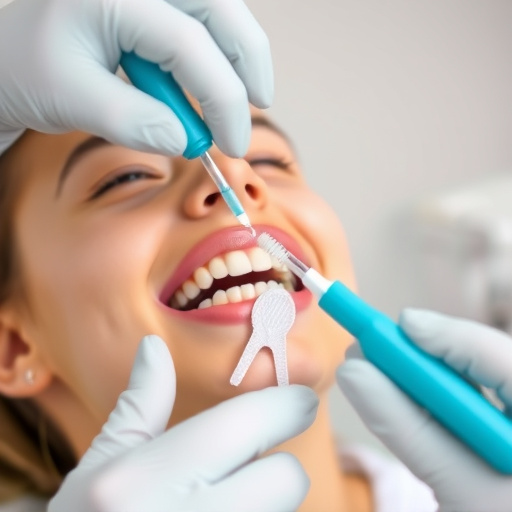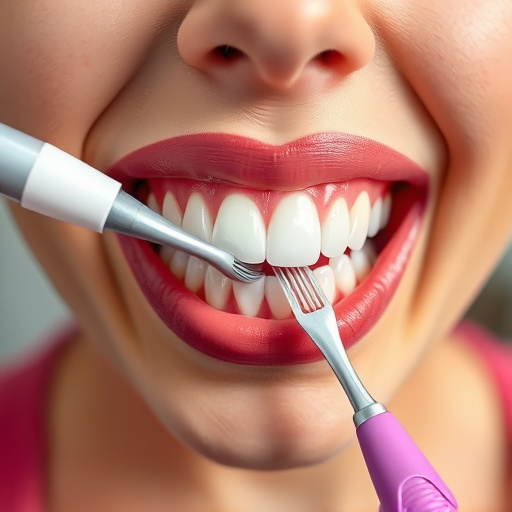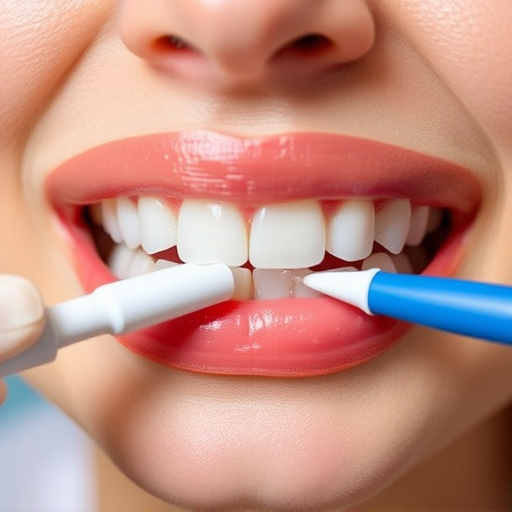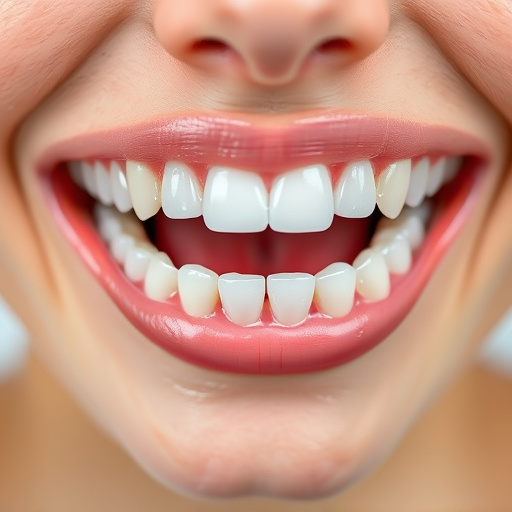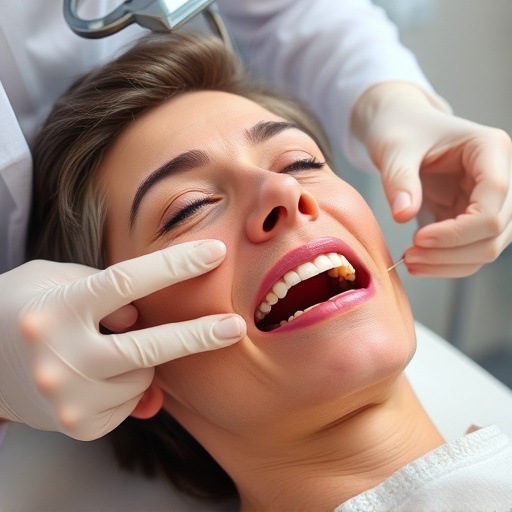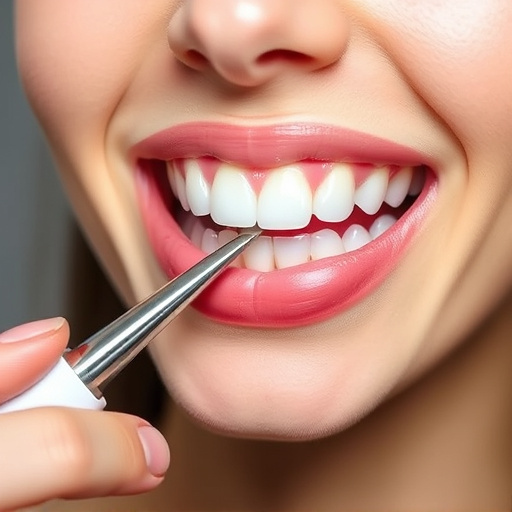Maintaining optimal oral health is vital for overall well-being. Regular (every 6 months) oral health assessments by dentists include comprehensive examinations of teeth, gums, and mouth, enabling early detection of issues like cavities or gum inflammation. These visits also offer opportunities to discuss personalized care plans and implement solutions such as routine oral exams, dental bonding, or clear aligners. Between assessments, consistent at-home oral hygiene through brushing, flossing, and mouthwash use is crucial, along with dietary choices that limit sugary snacks and drinks. Regular cleanings and check-ups help catch early signs of potential issues, from simple cavities to complex treatments like extractions or clear aligner therapies.
Regular oral health assessments are essential for maintaining a healthy smile and overall well-being. These comprehensive checkups go beyond routine cleanings, examining your gums, teeth, and mouth for any signs of issues. This article delves into the significance of these assessments and provides guidance on how often they should be scheduled. By understanding the optimal frequency, you can ensure consistent oral care, enabling early detection and prevention of potential problems.
Learn about the key aspects to consider for optimal oral health between visits as well.
- Understanding the Importance of Regular Oral Health Assessments
- How Frequently Should You Schedule an Assessment?
- Tips for Maintaining Optimal Oral Health Between Visits
Understanding the Importance of Regular Oral Health Assessments
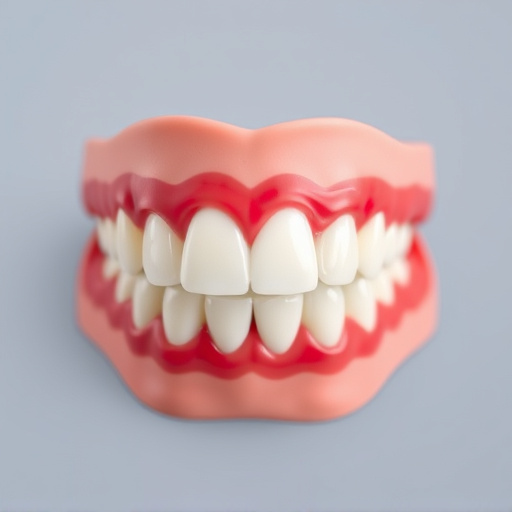
Maintaining optimal oral health is essential for your overall well-being. Regular visits to your dentist for oral health assessments are a cornerstone of preventative care. These comprehensive evaluations go beyond a simple cleaning; they involve a detailed examination of your teeth, gums, and mouth, allowing dentists to identify potential issues early on. Early detection is key in dentistry, as it can prevent small problems from escalating into more serious and costly treatments.
Oral health assessments provide an opportunity for dental professionals to address concerns, discuss personalized care plans, and offer solutions like routine oral exams, dental bonding, or clear aligners to improve your smile and overall dental hygiene. By scheduling these check-ins regularly, you can ensure that any changes in your mouth are caught promptly, promoting a healthier and happier you.
How Frequently Should You Schedule an Assessment?
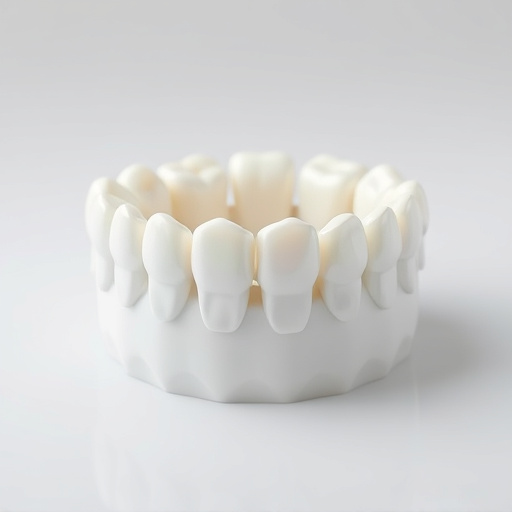
When it comes to maintaining optimal oral health, scheduling regular assessments is a cornerstone of proactive care. The frequency of these visits depends on various factors, including your general dental history, specific needs, and risk for oral diseases. As a rule of thumb, most adults should aim for routine oral exams every six months. This interval allows for thorough cleaning and early detection of any potential issues, from minor cavities to gum inflammation.
While twice-yearly visits are ideal for preventive care, it’s crucial to recognize when more urgent attention is required. If you experience pain, sudden sensitivity, swelling, or bleeding in your gums, or if a tooth becomes severely damaged or chipped, an emergency dental care appointment is necessary. Moreover, if you’re considering cosmetic procedures like fillings or other restorations, a detailed assessment will help determine the best course of action, ensuring both functionality and aesthetics.
Tips for Maintaining Optimal Oral Health Between Visits
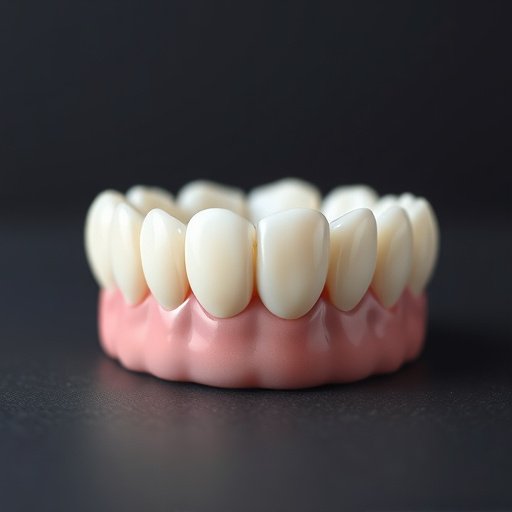
Between oral health assessments, there are several practices that can help maintain optimal oral hygiene and prevent issues from arising. Regular brushing and flossing remain the cornerstone of at-home care, ensuring plaque buildup is minimalized. Using mouthwash can also aid in reducing bacteria and freshening breath. Additionally, staying on top of dietary choices is crucial; limiting sugary snacks and drinks helps prevent tooth decay.
Regular dental cleanings are a must for removing any hardened plaque or tartar that brushing and flossing might miss. Beyond this, keeping up with check-ups allows dentists to catch potential problems early, whether it’s a simple cavity in need of filling or a more complex situation like tooth extractions or the need for clear aligners to straighten teeth.
Regular oral health assessments are a vital part of maintaining a healthy smile and overall well-being. By scheduling these appointments every 6 months, you allow for early detection of any potential issues and ensure your mouth remains in top condition. Between visits, practicing good oral hygiene, attending to dietary choices, and staying informed about at-home care routines will complement the professional tips received during assessments, fostering a vibrant and healthy mouth.

